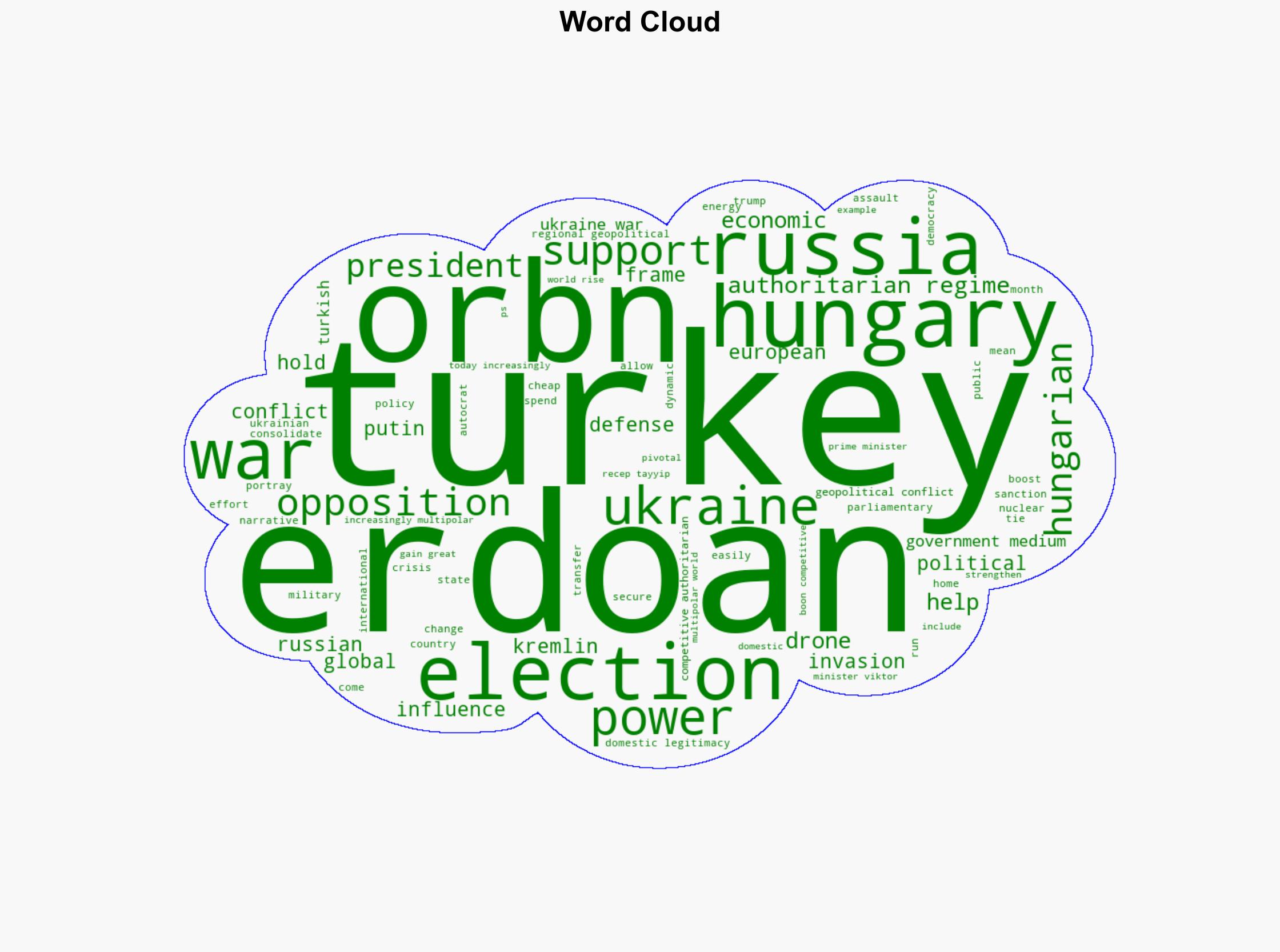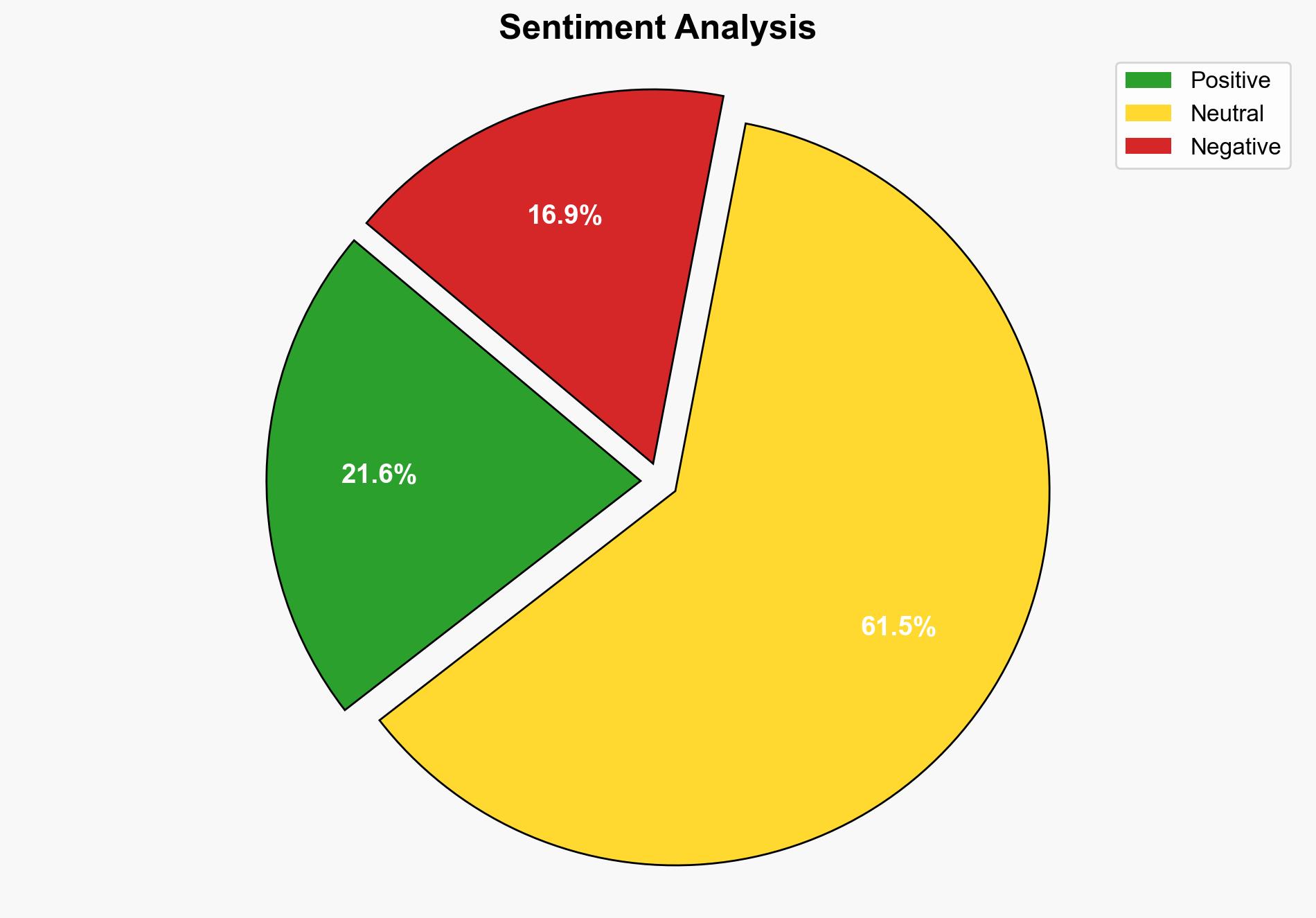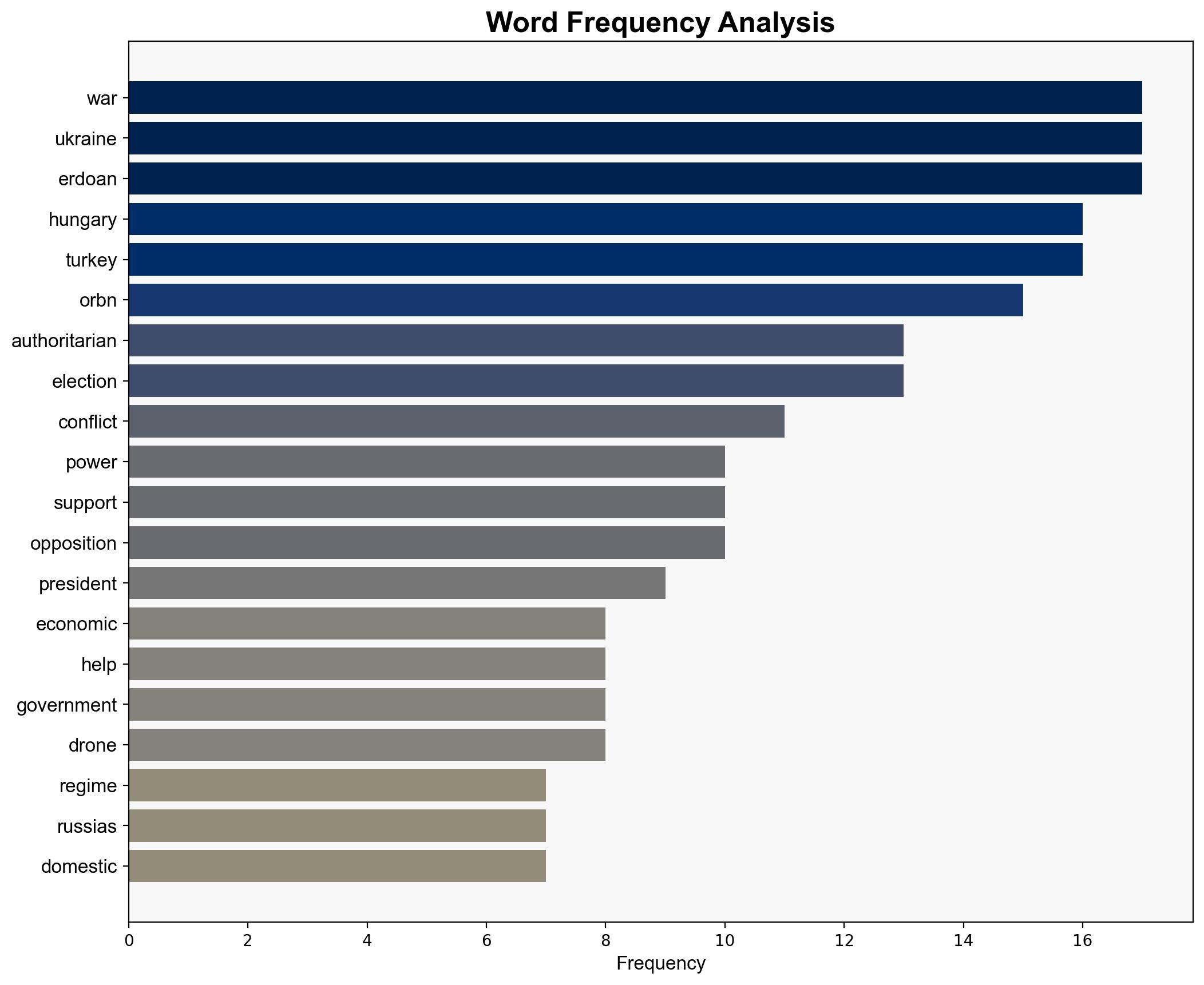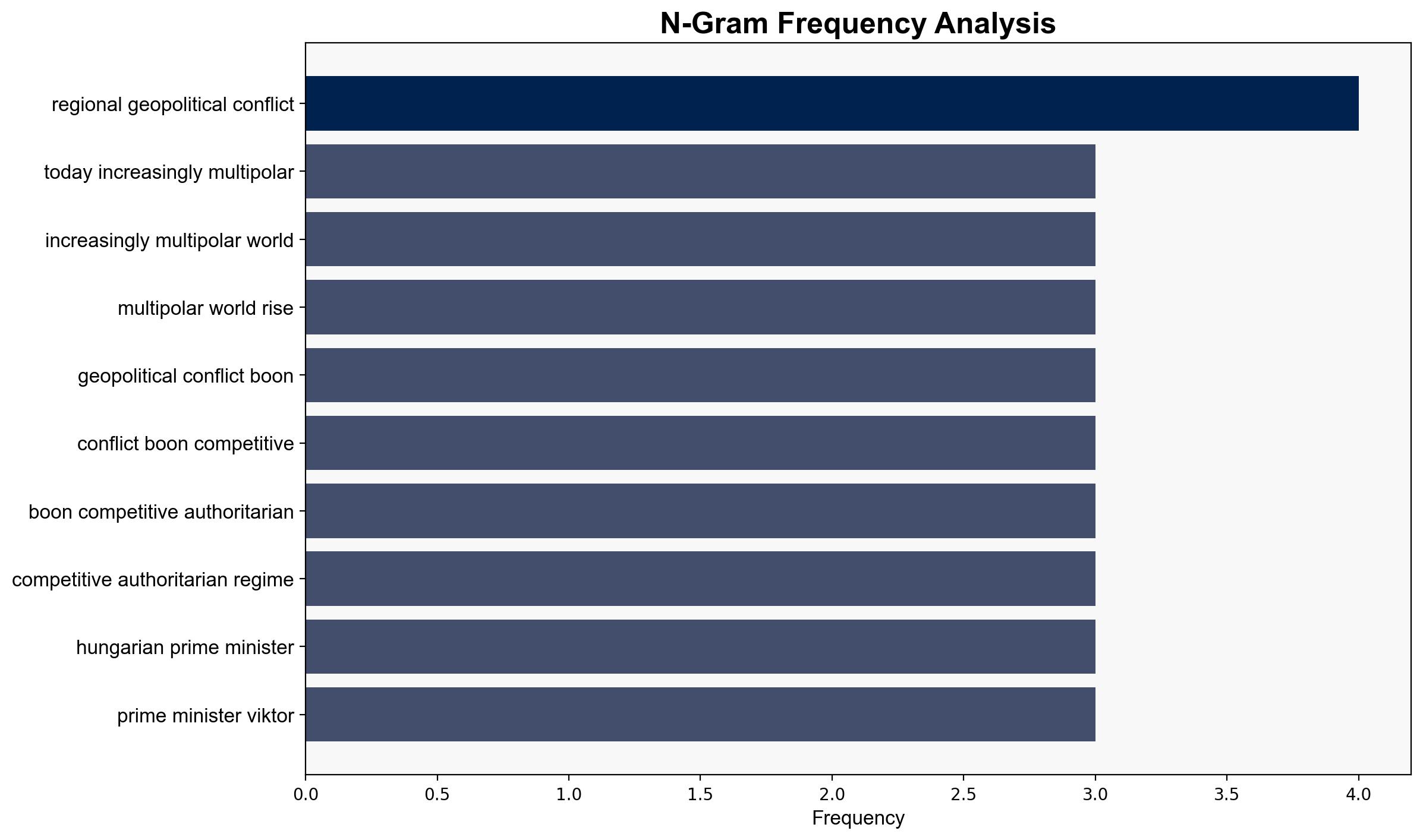How International Crises Help Authoritarians – Project Syndicate
Published on: 2025-10-28
Intelligence Report: How International Crises Help Authoritarians – Project Syndicate
1. BLUF (Bottom Line Up Front)
The analysis suggests that international crises can bolster authoritarian regimes by enabling leaders to consolidate power through strategic manipulation of geopolitical conflicts. The hypothesis that these crises are intentionally leveraged by authoritarians to strengthen domestic legitimacy is better supported. Confidence Level: Moderate. Recommended action includes monitoring geopolitical tensions and supporting democratic resilience initiatives.
2. Competing Hypotheses
1. **Hypothesis A**: Authoritarian leaders intentionally exploit international crises to consolidate power and enhance domestic legitimacy. This is achieved through electoral manipulation, media control, and strategic alliances.
2. **Hypothesis B**: The strengthening of authoritarian regimes during international crises is incidental, resulting from external geopolitical dynamics and not a deliberate strategy by the leaders themselves.
Using ACH 2.0, Hypothesis A is better supported due to evidence of deliberate actions by leaders like Viktor Orbán and Recep Tayyip Erdoğan, who have used geopolitical conflicts to bolster their domestic standing.
3. Key Assumptions and Red Flags
– **Assumptions**: Hypothesis A assumes that authoritarian leaders have the capacity and intent to manipulate crises for personal gain. Hypothesis B assumes that external factors are the primary drivers of authoritarian resilience.
– **Red Flags**: Potential bias in attributing intentionality to authoritarian actions without direct evidence. The complexity of geopolitical dynamics may obscure the true motivations of these leaders.
– **Inconsistent Data**: Lack of comprehensive data on internal decision-making processes within authoritarian regimes.
4. Implications and Strategic Risks
– **Patterns**: Authoritarian regimes may increasingly use international crises as opportunities to justify restrictive measures and suppress dissent.
– **Cascading Threats**: Continued geopolitical conflicts could lead to further erosion of democratic norms globally.
– **Potential Escalation**: Increased tensions between authoritarian and democratic states, potentially leading to economic sanctions or military confrontations.
5. Recommendations and Outlook
- Enhance intelligence gathering on authoritarian strategies during crises to better anticipate and counteract their moves.
- Support international coalitions that promote democratic values and resilience against authoritarian influence.
- Scenario Projections:
- **Best Case**: Democratic states effectively counter authoritarian narratives, leading to a resurgence of democratic norms.
- **Worst Case**: Authoritarian regimes successfully leverage crises to entrench power, leading to increased global instability.
- **Most Likely**: A mixed outcome where some authoritarian regimes strengthen while others face internal challenges.
6. Key Individuals and Entities
– Viktor Orbán
– Recep Tayyip Erdoğan
– Donald Trump
– Xi Jinping
– Vladimir Putin
7. Thematic Tags
national security threats, geopolitical strategy, authoritarian resilience, democratic erosion




